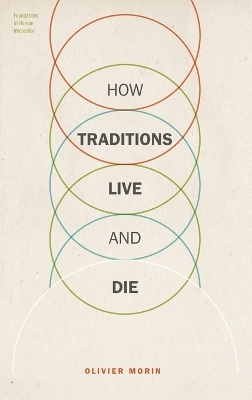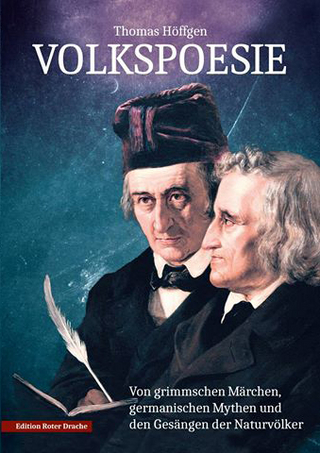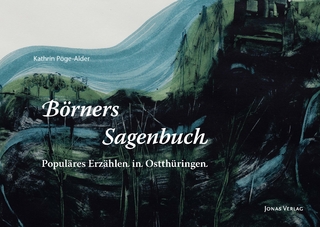
How Traditions Live and Die
Seiten
2016
Oxford University Press Inc (Verlag)
978-0-19-021049-6 (ISBN)
Oxford University Press Inc (Verlag)
978-0-19-021049-6 (ISBN)
This book brings together cognitive science and quantitative cultural history to look into the causes of cultural survival. Instead of blind and faithful imitation, it explores the appeal of traditions evolved to fit cognitive biases. This is both an introduction and an alternative to contemporary theories of cultural evolution.
Of all the things we do and say, most will never be repeated or reproduced. Once in a while, however, an idea or a practice generates a chain of transmission that covers more distance through space and time than any individual person ever could. What makes such transmission chains possible? For two centuries, the dominant view (from psychology to anthropology) was that humans owe their cultural prosperity to their powers of imitation. In this view, modern cultures exist because the people who carry them are gifted at remembering, storing and reproducing information. How Traditions Live and Die proposes an alternative to this standard view. What makes traditions live is not a general-purpose imitation capacity. Cultural transmission is partial, selective, often unfaithful. Some traditions live on in spite of this, because they tap into widespread and basic cognitive preferences. These attractive traditions spread, not by being better retained or more accurately transferred, but because they are transmitted over and over. This theory is used to shed light on various puzzles of cultural change (from the distribution of bird songs to the staying power of children's rhymes) and to explain the special relation that links the human species to its cultures. Morin combines recent work in cognitive anthropology with new advances in quantitative cultural history, to map and predict the diffusion of traditions. This book is both an introduction and an accessible alternative to contemporary theories of cultural evolution.
Of all the things we do and say, most will never be repeated or reproduced. Once in a while, however, an idea or a practice generates a chain of transmission that covers more distance through space and time than any individual person ever could. What makes such transmission chains possible? For two centuries, the dominant view (from psychology to anthropology) was that humans owe their cultural prosperity to their powers of imitation. In this view, modern cultures exist because the people who carry them are gifted at remembering, storing and reproducing information. How Traditions Live and Die proposes an alternative to this standard view. What makes traditions live is not a general-purpose imitation capacity. Cultural transmission is partial, selective, often unfaithful. Some traditions live on in spite of this, because they tap into widespread and basic cognitive preferences. These attractive traditions spread, not by being better retained or more accurately transferred, but because they are transmitted over and over. This theory is used to shed light on various puzzles of cultural change (from the distribution of bird songs to the staying power of children's rhymes) and to explain the special relation that links the human species to its cultures. Morin combines recent work in cognitive anthropology with new advances in quantitative cultural history, to map and predict the diffusion of traditions. This book is both an introduction and an accessible alternative to contemporary theories of cultural evolution.
Olivier Morin is Fellow of the KLI Institute, Klosterneuburg, Austria.
Introduction. The Flop Problem and the Wear-and-Tear Problem ; 1. The Transmission and Diffusion of Traditions ; 2. Communication and Imitation ; 3. The Myth of Compulsive Imitation ; 4. A Theory of Diffusion Chains ; 5. The Passing of Generations ; 6. An Ever More Cultural Animal ; Index
| Erscheint lt. Verlag | 11.2.2016 |
|---|---|
| Reihe/Serie | Foundations of Human Interaction |
| Verlagsort | New York |
| Sprache | englisch |
| Maße | 239 x 163 mm |
| Gewicht | 658 g |
| Themenwelt | Geisteswissenschaften ► Psychologie |
| Sozialwissenschaften ► Ethnologie ► Volkskunde | |
| Sozialwissenschaften ► Kommunikation / Medien ► Kommunikationswissenschaft | |
| Sozialwissenschaften ► Soziologie | |
| ISBN-10 | 0-19-021049-4 / 0190210494 |
| ISBN-13 | 978-0-19-021049-6 / 9780190210496 |
| Zustand | Neuware |
| Informationen gemäß Produktsicherheitsverordnung (GPSR) | |
| Haben Sie eine Frage zum Produkt? |
Mehr entdecken
aus dem Bereich
aus dem Bereich
von grimmschen Märchen, germanischen Mythen und den Gesängen der …
Buch | Hardcover (2024)
Edition Roter Drache (Verlag)
16,00 €
an Ethnography of crowds and unruly sounds
Buch | Softcover (2024)
Oxford University Press Inc (Verlag)
28,65 €
populäres Erzählen in Ostthüringen
Buch | Hardcover (2024)
Jonas Verlag
24,00 €


